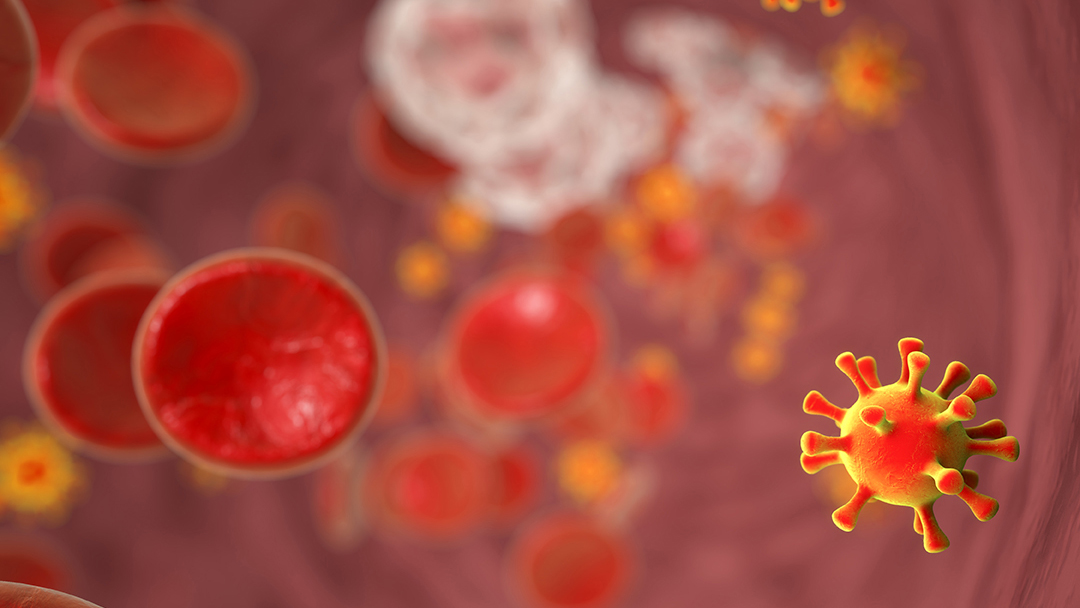PASER
Pan-African Studies to Evaluate Resistance


Objective
To monitor HIV drug resistance in adults in sub-Saharan Africa.
Description
The World Health Organization (WHO) recommends that antiretroviral treatment (ART) follows a public health approach in resource-poor settings like Africa: this strategy allows for the rapid scale-up of access to treatment for HIV positive persons and indeed has been successful over the past years. However, this approach provides less attention to individualized patient management and laboratory monitoring, in particular testing for HIV viral load in the blood, which raises the concern that HIV drug resistance (HIVDR) could emerge more easily.
The PharmAccess African Studies to Evaluate Resistance (PASER) was established in 2006 as a multi-country capacity building and research program in the sub-Saharan African region, for the assessment and prevention of HIVDR. Between 2006 and 2012, PASER and its sister network TASER in Asia (TREAT Asia Asian Studies to Evaluate Resistance), were part of the LAASER program; a partnership of the Amsterdam Institute for Global Health and Development, PharmAccess, Stichting Aids Fonds, TREAT Asia, and the International Civil Society Support. Since January 2013 PASER is managed through AIGHD.
The observational PASER program was articulated around the WHO HIV drug resistance (HIVDR) prevention strategy. It involved surveillance and monitoring of various cohorts of HIV patients initiating ART in 13 public and private clinical sites, from six countries: Kenya, Nigeria, South Africa, Uganda, Zambia and Zimbabwe.
Second phase PASER
Since 2012, AIGHD Foundation continues the PASER studies in five of the six original participating countries with support from several donors: AIDS Fonds (Zimbabwe), Heineken Africa Foundation (Nigeria), NWO-WOTRO and the Jura Foundation (Uganda) and the Embassy of the Kingdom of the Netherlands regional HIV/AIDS program (Zambia, South Africa and Zimbabwe). The objectives of this second phase of the PASER program are:
- To continue observational cohorts creating unique longer-term follow-up data on acquired HIVDR in adults in Africa;
- To contribute to and align with the developing WHO HIVDR strategy as propagated by HIVResNet;
- To forge strategic and operational alliances with like-minded organisations in HIVDR, in particular SATuRN
- To contribute to advocacy “keep HIVDR on the map in Africa” and inform policy makers for evidence-based decision making; and
- To accommodate complementary (operational) research in the area of HIVDR, for example in the areas of modeling consequences of HIVDR, immune activation as a driver for HIVDR or affordable HIVDR tests for Africa.
Over the past several years the PASER program on African adults has been supplemented with similar studies on pediatric ART and HIVDR: children from Uganda and Nigeria are involved in the Monitoring Antiretroviral Resistance in Children (MARCH) study, contributing to the international network on HIV drug resistance in Africa.
Publications
- AIDS behandeling in Afrika: het risico van antiretrovirale resistentie.
- The status of HIV-1 resistance to antiretroviral drugs in sub-Saharan Africa.
- Baseline drug-resistant HIV-1 at initiation of first-line antiretroviral therapy in Lusaka, Zambia.
- Transmitted antiretroviral drug resistance among newly HIV-1 diagnosed young individuals in Kampala.
- Unnecessary antiretroviral treatment switches and accumulation of HIV resistance mutations; two arguments for viral load monitoring in Africa.
- HIV-1 drug resistance among antiretroviral-naïve individuals in sub-Saharan Africa after rollout of antiretroviral therapy: multicentre observational study.
- Cohort profile: the PharmAccess African (PASER-M) and the TREAT Asia (TASER-M) monitoring studies to evaluate resistance – HIV drug resistance in sub-Saharan Africa and the Asia-Pacific.
- Effect of pre-treatment drug-resistance on immunological, virological and drug-resistance outcomes after the first year of antiretroviral therapy for HIV-1: multicentre cohort in six African countries.
- Accumulation of HIV drug resistance mutations in patients failing first-line antiretroviral treatment in South Africa.
- High prevalence of transmitted antiretroviral drug resistance among newly HIV type 1 diagnosed adults in Mombasa, Kenya.
- Second-line antiretroviral treatment successfully re-suppresses drug-resistant HIV-1 after first-line failure: prospective cohort in sub-Saharan Africa.
- Early warning indicators for population-based monitoring of HIV drug resistance in six African countries.
- Building capacity for the assessment of HIV drug resistance: experiences from the PharmAccess African Studies to Evaluate Resistance (PASER) Network.
- Patterns of HIV-1 drug-resistance after first-line ART failure in six sub-Saharan African countries: implications for second-line strategies.
- Global threat form drug resistant HIV in sub Saharan Africa.
- Low prevalence of transmitted HIV-1 drug resistance amongst ARV naïve adults in a rural HIV clinic in Kenya.
- Emerging HIV-1 drug resistance after roll-out of antiretroviral therapy in sub-Saharan Africa.
- HIV-1 drug resistance in antiretroviral-naïve patients in sub-Saharan Africa.
- Nucleoside reverse transcriptase inhibitor resistance mutations associated with first-line Stavudine-containing antiretroviral therapy: programmatic implications for countries phasing out Stavudine.
- Pretreatment HIV-1 drug resistance in Africa.
- Averted HIV infections due to expanded antiretroviral treatment eligibility offsets risk of transmitted drug resistance: a modeling study.
- HIV-HBV co-infection in southern Africa and the effect of lamivudine versus tenofovir-containing cART on HBV outcomes.
- Association between health worker motivation and healthcare quality efforts in Ghana.
- HIV Type 1 Transmission Networks Among Men Having Sex with Men and Heterosexuals in Kenya.
- Pretreatment HIV Drug Resistance Increases Regimen Switches in Sub-Saharan Africa.
- Long-term Virological Outcomes of First-Line Antiretroviral Therapy for HIV-1 in Low- and Middle-Income Countries: A Systematic Review and Meta-analysis
- Perspectives: Are integrase inhibitors the solution to HIV drug resistance in the Asia-Pacific region?
Partners
PharmAccess Foundation
Department of Virology at the University Medical Centre Utrecht
Department of Molecular Medicine and Haematology of the University of the Witwatersrand
Advanced Biological Laboratories (ABL)
Joint Clinical Research Centre (JCRC)
Lagos University Teaching Hospital (LUTH)
Institute of Human Virology – Nigeria
Newlands Clinic – Zimbabwe
Muelmed Hospital/Practise of Dr Botes – South Africa
Lusaka Trust Hospital – Zambia
Coptic Hope Center – Zambia
Contact info
Professor Tobias Rinke de Wit (t.rinkedewit@aighd.org)
Marloes Nijboer (m.nijboer@aighd.org)
Funders
Ministry of Foreign Affairs of the Netherlands (NWO-WOTRO)
African partnership for capacity development and clinical interventions against poverty-related diseases (NACCAPII): ART-A phase I, ART-A phase II
Stichting AIDS Fonds: Project Leerstoel
De Grote Onderneming
Heineken Africa Foundation
Jura Foundation
Embassy of the Kingdom of the Netherlands in Pretoria Regional HIV/AIDS Program
Countries
Nigeria
Zimbabwe
Uganda
Zambia
Kenya
South Africa
